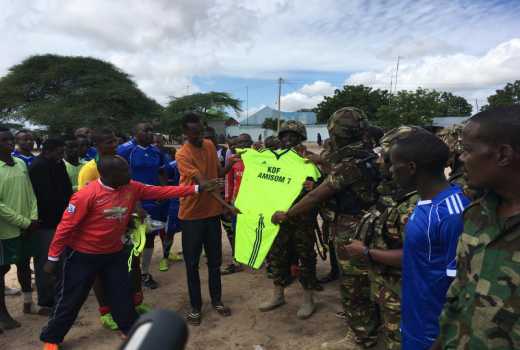×
The Standard e-Paper
Kenya’s Boldest Voice

In between sentry duties, looking for a strategic position to make a phone call to family, the Kenyan soldier spends time either in a chapel, mosque, jogging, playing football or in a make shift gym.
And holding firmly onto machine guns, some soldiers tend to chicken gifted to them by locals while dogs trail the Armoured Personnel Carrier leaving the camp for an operation.